Hua Tuo Memorial: A Journey Through Ancient Medicine and Healing
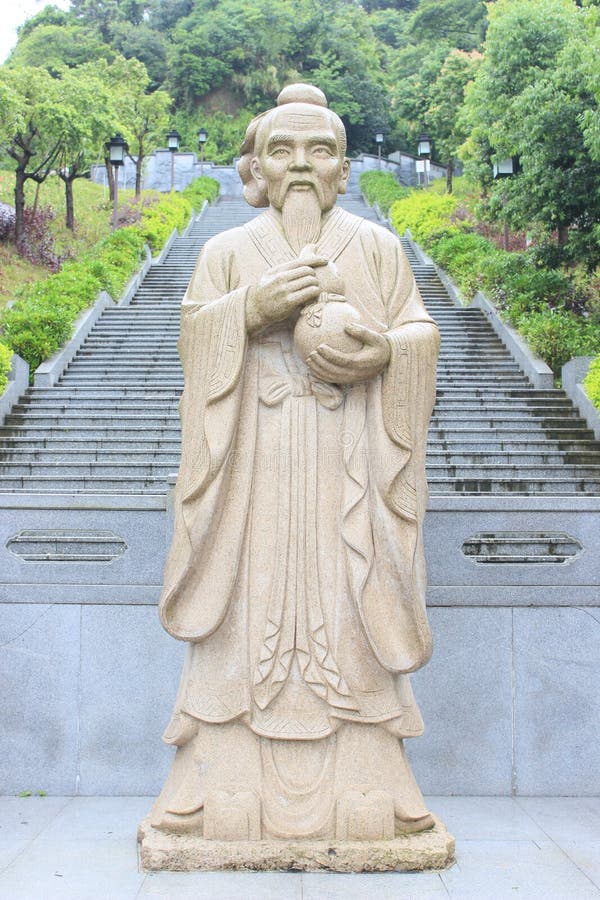
An Essential Guide to Visiting Hua Tuo Memorial
Nestled in the picturesque Yaowang Mountain Scenic Area, the Hua Tuo Memorial (华佗纪念馆) pays homage to one of China’s most revered figures in traditional medicine. A visit to this memorial is not just a journey through history, but an immersive experience into the world of Chinese herbal medicine and the legendary life of Hua Tuo—often hailed as the father of surgery.
As you wander through the serene landscape that surrounds the memorial, you’ll be enveloped by the lush greenery and majestic rock formations that have inspired countless tales of healing and wellness. The memorial itself is adorned with intricate designs celebrating Hua Tuo’s contributions to medicine, offering insights into his pioneering techniques and philosophy. Here, visitors can explore a wealth of artifacts, illustrations, and informative displays that narrate Hua Tuo’s life story and his profound impact on both the medical field and Chinese culture.
Beyond the memorial’s walls, the enchanting Yaowang Mountain beckons with its natural beauty and rich heritage, making it an ideal destination for travelers seeking both relaxation and enlightenment. Whether you’re an enthusiast of history, a seeker of wellness, or simply someone who enjoys the great outdoors, the Hua Tuo Memorial offers a unique blend of education and inspiration that will leave a lasting impression. Prepare to embark on a journey that intertwines nature, culture, and the timeless wisdom of ancient Chinese medicine.
In This Guide
- An Essential Guide to Visiting Hua Tuo Memorial
- The Rich History and Legends of Hua Tuo Memorial
- Main Highlights: What You Absolutely Can’t Miss
- Planning Your Visit: A Practical Guide
- Tickets: Prices, Booking, and Tips
- How to Get There: A Complete Transportation Guide
- Local Cuisine and Accommodation Nearby
- Frequently Asked Questions
- Final Thoughts on Your Trip
The Rich History and Legends of Hua Tuo Memorial
Nestled within the enchanting landscapes of Yaowang Mountain, the Hua Tuo Memorial is a tribute to one of China’s most revered figures in traditional medicine. Hua Tuo, who lived during the late Eastern Han dynasty (circa 140-208 AD), is often celebrated as the “Divine Physician” for his pioneering contributions to surgery and herbal medicine.
Hua Tuo’s legacy is steeped in rich history and captivating legends. It is said that he was the first to use anesthesia in surgical procedures, utilizing a concoction of herbal mixtures, which he famously referred to as “mafeisan.” This innovative approach not only alleviated pain for his patients but also paved the way for future medical practices. His surgical skills were so advanced that they reportedly included operations such as the removal of tumors and even complex surgeries that are astonishingly similar to modern-day techniques.
In addition to his surgical prowess, Hua Tuo was a proponent of physical fitness and wellness. He is credited with developing “Baduanjin,” a series of exercises aimed at promoting health and longevity. This holistic view of medicine—integrating physical health, mental well-being, and herbal remedies—places Hua Tuo at the forefront of traditional Chinese medicine, a practice that continues to influence modern healthcare.
As you wander through the memorial, you will encounter various artifacts and exhibits that illuminate Hua Tuo’s life and work, as well as the broader context of medicine in ancient China. The serene environment, complemented by the surrounding natural beauty of Yaowang Mountain, enhances the reflective experience of visiting this site.
Legends surrounding Hua Tuo add an enchanting layer to his narrative. One popular tale recounts his encounter with the warlord Cao Cao, who sought Hua Tuo’s expertise for a debilitating illness. After a thorough examination, Hua Tuo prescribed a regimen of exercise and herbal medicine. However, Cao Cao, eager for immediate relief, demanded surgery instead. In a twist of fate, this decision led to Hua Tuo’s imprisonment, showcasing the conflicts between traditional wisdom and the ambitions of power.
Visitors to the Hua Tuo Memorial can immerse themselves in not just the history of this legendary figure but also in the deep cultural heritage of Chinese medicine. The memorial serves as a beacon of knowledge, honoring a man whose influence transcends centuries, reminding us of the profound connections between health, history, and nature.
This tribute is not merely a celebration of Hua Tuo’s medical genius but a testament to the enduring spirit of innovation and healing that continues to resonate within traditional Chinese medicine today. Whether you are a history enthusiast, a health lover, or simply seeking a peaceful escape, the Hua Tuo Memorial promises to be an enlightening stop on your journey through the scenic wonders of Yaowang Mountain.
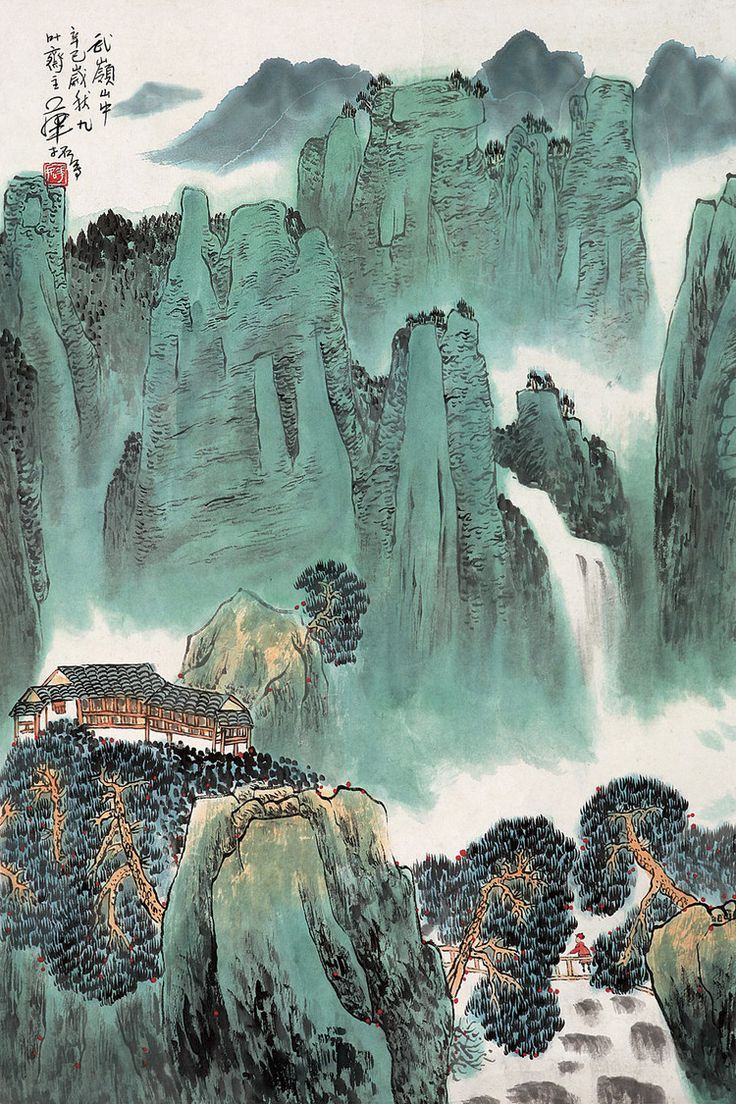
Hua Tuo Memorial.
Main Highlights: What You Absolutely Can’t Miss
Visiting the Hua Tuo Memorial offers an immersive experience into the rich tapestry of Chinese medicine culture, showcasing the legacy of one of China’s most revered ancient physicians—Hua Tuo. Here are the main highlights that you absolutely can’t miss during your visit to this remarkable site.
1. The Memorial Hall
Step inside the beautifully designed Memorial Hall dedicated to Hua Tuo. The hall is adorned with historical artifacts, intricate murals, and educational exhibits that detail Hua Tuo’s pioneering contributions to medicine, including his revolutionary surgical techniques and herbal remedies. Don’t forget to take a moment to reflect at the statue of Hua Tuo, which captures his spirit and dedication to healing.
2. Scenic Surroundings
The Hua Tuo Memorial is set against the stunning backdrop of Yaowang Mountain, known for its breathtaking landscapes and rich biodiversity. Take a leisurely stroll around the serene gardens and paths that surround the memorial, where you can enjoy the fresh mountain air and the tranquility of nature. The scenic beauty enhances the meditative experience, making it a perfect spot for reflection.
3. Traditional Chinese Medicine (TCM) Experience
Engage with the essence of Traditional Chinese Medicine at the various interactive displays and workshops offered at the memorial. Participate in hands-on activities like herbal medicine preparation or acupuncture demonstrations, and learn about the holistic approaches that have been practiced for centuries. This immersive experience is perfect for those curious about TCM and its principles.
4. The Double Waterfall
Don’t miss the nearby Shennong Double Waterfall, a stunning natural wonder that reportedly played a role in Hua Tuo’s life. Legend has it that he often gathered herbs near this waterfall. The dual cascades create a mesmerizing spectacle, especially on sunny days when rainbows form in the mist. Take your camera to capture the enchanting views and the vibrant scenery.
5. Yehouping and the Wild Macaques
For a bit of fun and interaction, head to Yehouping, where you can observe the playful wild macaques that inhabit the area. These charming creatures are known for their mischievous antics and love for photography. They are a great addition to your visit, adding a playful element to the serene atmosphere of the memorial.
6. Sky Bridge
For those seeking breathtaking views, walk along the Sky Bridge, a transparent glass pathway that stretches over 168 meters and soars more than 120 meters above the ground. This thrilling experience offers panoramic views of the surrounding mountainous landscape, giving you a unique perspective of the beauty that Hua Tuo cherished.
7. Cultural Events and Festivals
If your visit coincides with any cultural events or festivals, be sure to take part. The Hua Tuo Memorial often hosts special activities that celebrate traditional Chinese medicine and culture, including performances, lectures, and demonstrations. These events provide a deeper insight into the enduring legacy of Hua Tuo and his contributions to health and wellness.
8. Local Cuisine
Finally, don’t leave without indulging in some local delicacies. Quzhou is known for its unique culinary offerings, including dishes inspired by traditional medicine. Sample herbal-infused meals or visit nearby eateries to experience the local flavors, which are as nourishing as they are delicious.
Conclusion
The Hua Tuo Memorial is more than just a tribute to a legendary figure; it is a celebration of the rich heritage of Chinese medicine intertwined with the stunning natural beauty of Yaowang Mountain. Whether you’re a history buff, a nature lover, or simply curious about traditional healing practices, this destination promises an enriching experience that will linger long after your visit.
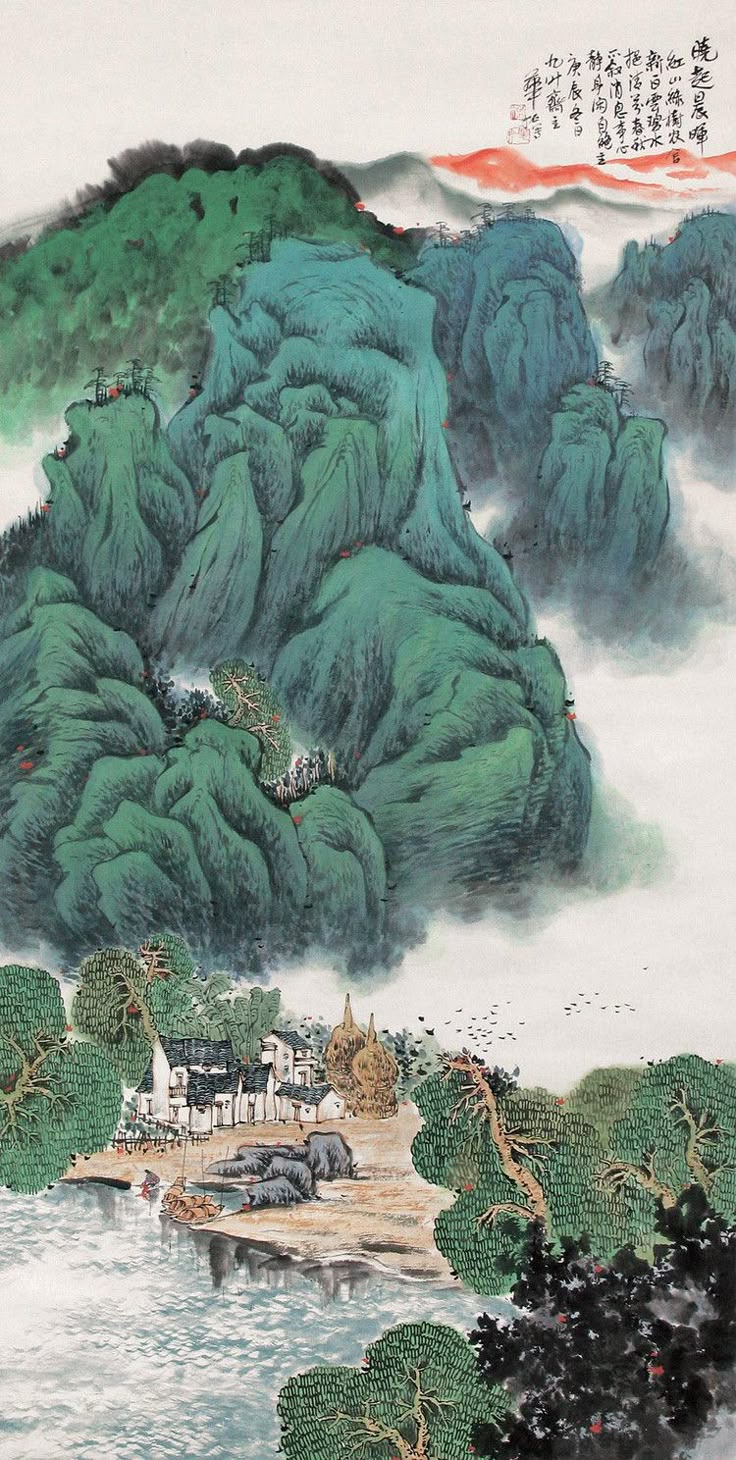
Hua Tuo Memorial.
Planning Your Visit: A Practical Guide
Visiting the Hua Tuo Memorial (华佗纪念馆) is a journey that beautifully fuses history, culture, and the breathtaking natural beauty of the Yaowang Mountain Scenic Area. As you plan your visit, here are essential tips and details to ensure a memorable experience.
Getting There
Location:
The Hua Tuo Memorial is located in Huangtankou Township, Hanjiang District, Quzhou City, within the expansive Yaowang Mountain Scenic Area.
Transportation:
– By Train: The high-speed rail network connects several major cities in China to Quzhou. From Hangzhou, it takes about 1.5 hours. Expect ticket prices to start around 50 yuan.
– By Car: If you prefer driving, renting a car is a convenient option. The scenic area is well-signposted, and navigating through the lush landscape is an experience in itself.
Opening Hours and Admission
- Opening Hours: Typically, the memorial is open from 8:30 AM to 5:30 PM, but it’s wise to check for any seasonal changes or special events.
- Admission Fee: The entrance fee is approximately 38.44 NZD (or about 170 CNY), which provides access to the memorial and the surrounding scenic areas.
Recommended Visit Duration
Plan to spend 2-3 hours at the Hua Tuo Memorial to fully appreciate the exhibits and the serene environment. If you wish to explore the broader Yaowang Mountain Scenic Area, consider allocating more time.
What to Expect
The Hua Tuo Memorial celebrates the life and contributions of the legendary Chinese physician Hua Tuo, renowned for his advancements in medicine and surgery. The memorial features rich historical exhibits, including artifacts and interactive displays that showcase traditional Chinese medicine.
Scenic Highlights Nearby:
– Yaowang Mountain: Known for its majestic landscapes and cultural significance, the area features several scenic spots such as Sanzu Peak and Mawei Waterfall, each offering serene views and excellent photo opportunities.
– Shennong Waterfall: Famous for its breathtaking double cascades, this spot is ideal for nature lovers and those looking to unwind amidst beauty.
– Sky Bridge: Don’t miss a walk on the glass bridge for stunning views of the valley below.
Tips for Your Visit
- Dress Comfortably: Wear comfortable shoes as you’ll likely do some walking, especially if you explore the surrounding trails and scenic spots.
- Weather Preparedness: The region experiences varying weather. Bring a light jacket and an umbrella, especially during the rainy season.
- Photography: Capture the stunning landscapes, but be respectful of the memorial’s serene atmosphere and other visitors.
- Local Cuisine: Don’t miss trying the local delicacies in Quzhou, such as the unique “three heads and one palm” dish. Nearby food stalls and restaurants offer delicious local fare.
Conclusion
Visiting the Hua Tuo Memorial is not only an opportunity to delve into the rich history of traditional Chinese medicine but also a chance to connect with the natural beauty that surrounds it. With proper planning, your visit can be both educational and relaxing, making it a highlight of your travels in China. Enjoy your journey through history and nature!
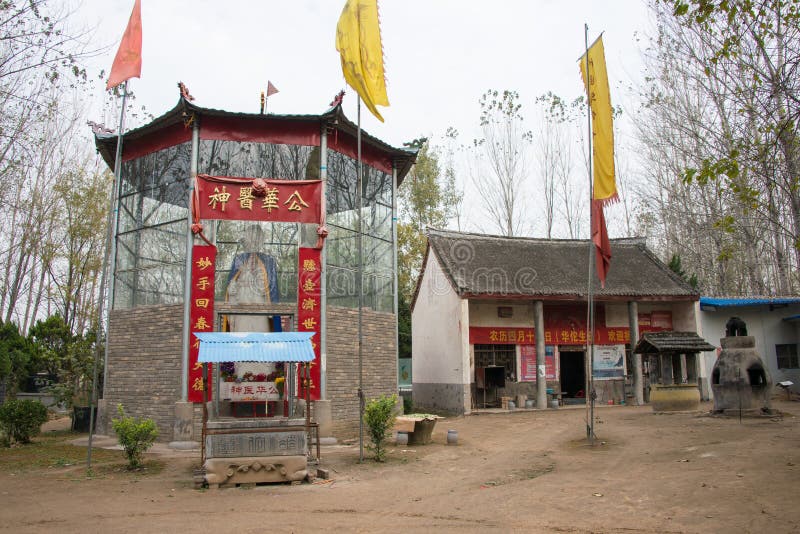
Hua Tuo Memorial.
Tickets: Prices, Booking, and Tips
When planning your visit to the Hua Tuo Memorial (华佗纪念馆), it’s essential to stay informed about ticket prices, booking options, and some handy tips to enhance your experience.
Ticket Prices
Admission to the Hua Tuo Memorial is reasonably priced, making it accessible for all travelers. As of now, tickets are approximately RMB 30 (around NZD 6.50), which grants you access to the memorial and its surrounding attractions, steeped in rich Chinese medicine culture and history.
Booking Options
While tickets can often be purchased at the entrance, it’s recommended to book in advance, especially during peak tourist seasons. You can reserve your tickets through official websites or popular travel platforms to avoid long queues. Keep an eye out for any discounts or special promotions that may be available for group bookings or online purchases.
Tips for Your Visit
-
Plan Your Timing: The best time to visit is early in the day or late afternoon when the crowds are thinner. This will give you a more relaxed experience as you explore the memorial and its serene surroundings.
-
Combine Your Visit: The Hua Tuo Memorial is located within the scenic Yaowang Mountain area, which features multiple attractions such as waterfalls, hiking trails, and scenic viewpoints. Consider purchasing a combined ticket for broader access to the area.
-
Transportation: If you’re traveling from nearby cities, check for high-speed rail options that can quickly and conveniently bring you to Quzhou. Once you’re in the area, local transportation options like buses or taxis can help you reach the memorial without hassle.
-
Bring Essentials: Make sure to pack essentials like water, sunscreen, and a camera. The beautiful landscapes around the memorial make for stunning photographs, so don’t forget to capture the moment!
-
Cultural Respect: As you explore, remember that the Hua Tuo Memorial is a place of historical significance. Maintain a respectful demeanor, especially in quieter areas where visitors may be reflecting on the rich history of traditional Chinese medicine.
By keeping these insights in mind, your visit to the Hua Tuo Memorial will not only be enjoyable but also deeply enriching, connecting you to the legacy of one of China’s most revered physicians. Enjoy your journey into the heart of traditional Chinese culture!
How to Get There: A Complete Transportation Guide
Reaching the Hua Tuo Memorial (华佗纪念馆) is an adventure that opens up a world of rich history and stunning natural beauty. Nestled within the scenic Yaowang Mountain area, this memorial is dedicated to Hua Tuo, a revered figure in traditional Chinese medicine. Here’s a comprehensive guide to help you navigate your way to this fascinating destination.
By Air
The nearest major airport to the Hua Tuo Memorial is Quzhou Airport (JUZ), which connects to several major cities in China. Once you land, you can opt for a taxi or a ride-sharing service to get to the memorial, which is approximately a 30-minute drive away.
By Train
For those traveling from other cities, the high-speed rail network in China makes it easy to reach Quzhou. The Quzhou Railway Station is well-connected with direct services from key cities like Hangzhou, Shanghai, and Nanjing.
- From Quzhou Railway Station to the Memorial:
- Taxi: The most convenient option. Expect a fare of around 50-70 RMB.
- Public Bus: Buses are available from the station to various stops near the Yaowang Mountain Scenic Area. However, be prepared for a longer journey and less frequent service.
By Bus
If you prefer road travel, long-distance buses also connect Quzhou with nearby cities. Once in Quzhou, local buses can take you to the Yaowang Mountain area. Look for buses heading towards Huangtankou Township, which is the closest stop to the memorial.
By Car
Renting a car provides flexibility, especially if you plan to explore the surrounding scenic spots. The route to the Hua Tuo Memorial from Quzhou is straightforward:
1. Head northwest on G104.
2. Follow the signs for Yaowang Mountain Scenic Area.
3. Parking is available near the entrance of the memorial.
Local Transportation
Once you arrive at Yaowang Mountain, you can take advantage of the local transportation options:
- Shuttle Buses: There are shuttle services within the scenic area that can take you to various attractions, including the Hua Tuo Memorial.
- Walking: The area is designed for exploration on foot, and many scenic spots are within walking distance. Be sure to wear comfortable shoes!
Final Tips
- Language: While many signs are in Mandarin, having a translation app can help you communicate with local drivers and staff.
- Timing: Plan your visit during the morning or late afternoon for a more peaceful experience, as the area can get crowded during peak hours.
- Weather: Check the weather forecast before you go, as conditions can change quickly in mountainous areas, and prepare accordingly.
By following this guide, you can ensure a smooth journey to the Hua Tuo Memorial, allowing you to immerse yourself in the rich heritage of Chinese medicine and enjoy the breathtaking landscapes of Yaowang Mountain. Safe travels!
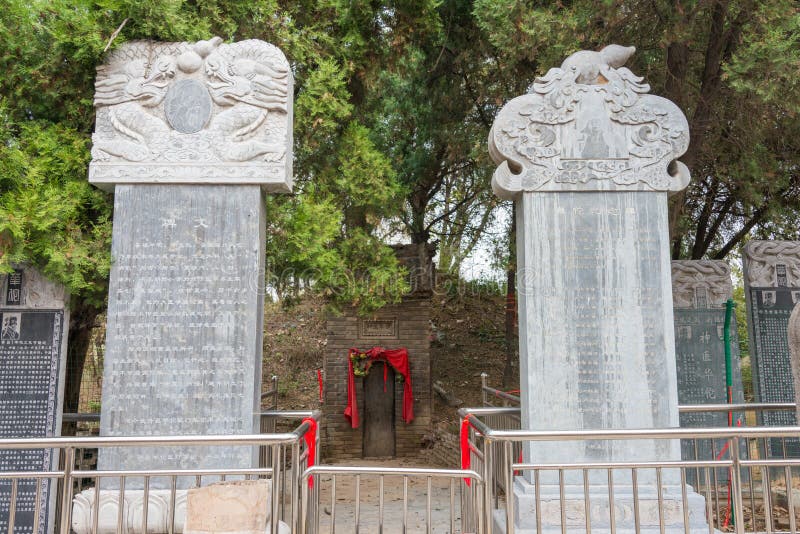
Hua Tuo Memorial.
Local Cuisine and Accommodation Nearby
Nestled in the scenic surroundings of Yaowang Mountain, the Hua Tuo Memorial (华佗纪念馆) is not only a tribute to the great physician Hua Tuo but also a gateway to experiencing the local culinary delights and comfortable accommodations that enhance your visit.
Culinary Delights
When it comes to local cuisine, Quzhou offers a vibrant food scene that you won’t want to miss:
-
“Three Heads and One Palm”: This signature dish features spicy duck heads, rabbit heads, fish heads, and duck palms. It’s a must-try for those who enjoy bold flavors and unique textures. You can find this delicacy at various local eateries, especially in bustling areas like Fangmen Street, where late-night snacks are plentiful.
-
Quzhou Baked Cakes: A visit to the Shuitingmen Ancient Street is incomplete without sampling these delicious treats. These baked cakes are made fresh daily, and you can get three for just 10 yuan, making it an affordable snack to fuel your explorations.
-
Crayfish and Beer: For a lively nighttime experience, head to Fangmen Street again, where you can indulge in a plate of spicy crayfish paired with a cold beer, perfect for relaxing after a day of sightseeing. Expect to spend around 60 yuan per person here.
Accommodation Recommendations
Whether you’re seeking a cozy retreat or a more lavish stay, there are plenty of accommodation options near the Hua Tuo Memorial:
-
Local Homestays: For an authentic experience, consider staying at one of the many homestays in Quzhou. These charming accommodations typically offer comfortable rooms and home-cooked meals for about 60 yuan per person. It’s a great way to connect with local culture and hospitality.
-
Hotels near Yaowang Mountain: If you prefer a more traditional hotel experience, there are several options near the Yaowang Mountain Scenic Area. Look for hotels that provide easy access to attractions while offering amenities like breakfast and guided tours.
-
Eco-friendly Resorts: For those interested in wellness and nature, eco-friendly resorts in the vicinity provide a serene atmosphere, balancing comfort with environmental consciousness. These often include spa services and health-focused dining options.
Conclusion
Visiting the Hua Tuo Memorial offers a unique opportunity to dive into the rich cultural and culinary landscape of Quzhou. With delightful local dishes and a range of accommodations, your trip can be both enriching and comfortable. Be sure to savor the flavors of the region while soaking in the stunning natural beauty surrounding the memorial!
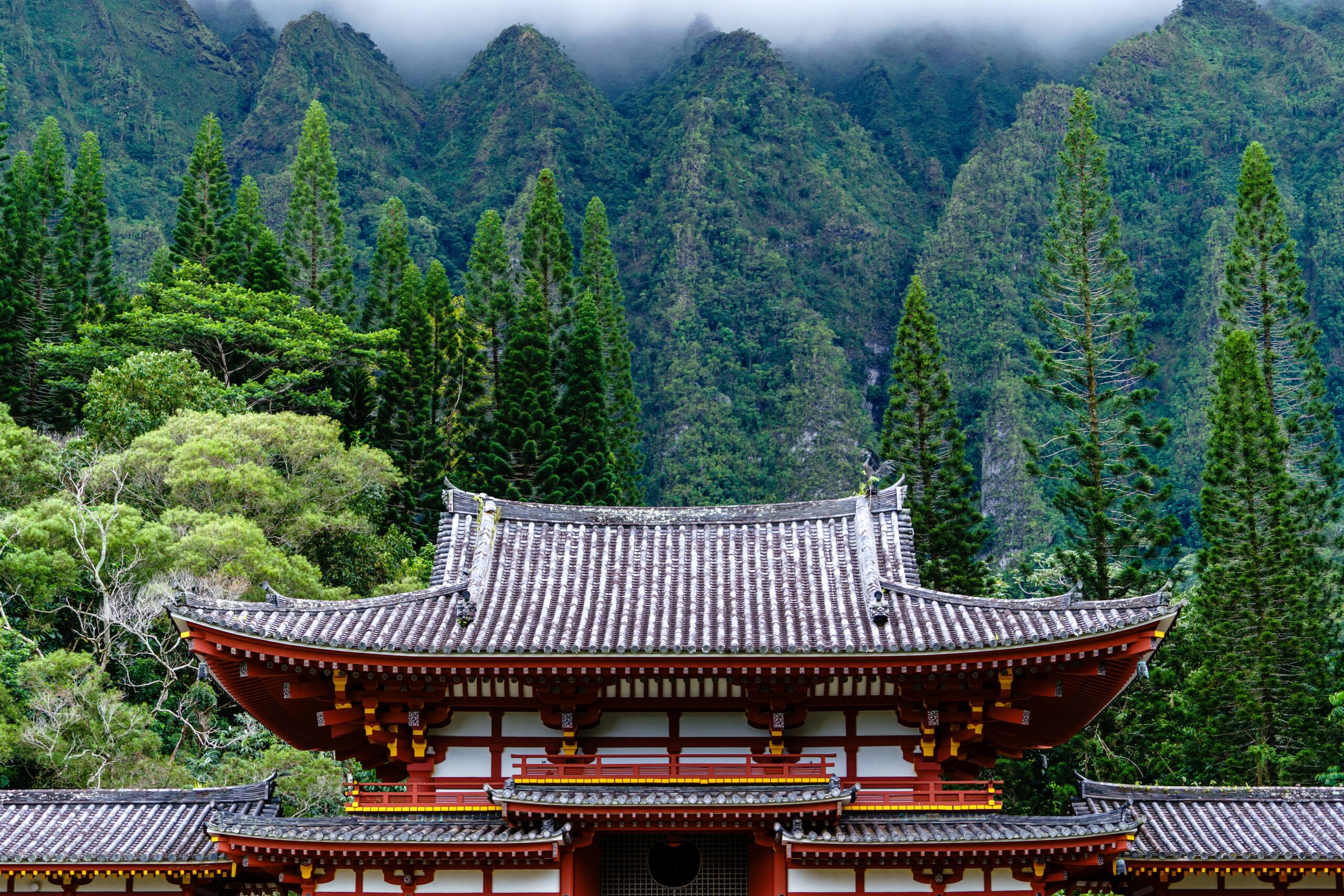
Hua Tuo Memorial.
Frequently Asked Questions
Frequently Asked Questions about Hua Tuo Memorial
1. What is the Hua Tuo Memorial?
The Hua Tuo Memorial, located in the scenic Yaowang Mountain area, is dedicated to Hua Tuo, a famed physician from ancient China known for his contributions to traditional Chinese medicine. The memorial celebrates his legacy and offers insights into the rich history of herbal medicine.
2. How do I get to the Hua Tuo Memorial?
The Hua Tuo Memorial is accessible by public transport and is conveniently located near Quzhou City. High-speed rail services connect to Quzhou, and from there, local buses or taxis can take you directly to the memorial. Be sure to check local schedules for the most accurate information.
3. What are the opening hours of the Hua Tuo Memorial?
The memorial typically opens from 8:00 AM to 5:00 PM. However, it’s advisable to check for any seasonal changes in operating hours or special events that may affect access.
4. Is there an entrance fee for the Hua Tuo Memorial?
Yes, there is a nominal entrance fee to visit the Hua Tuo Memorial, which helps maintain the site. The price is generally around NZD 38.44, though it may vary, so it’s a good idea to confirm the current rate before your visit.
5. What should I expect to see at the Hua Tuo Memorial?
Visitors can explore beautifully landscaped gardens, exhibitions detailing Hua Tuo’s life and medical practices, and various statues and monuments honoring traditional Chinese medicine. The serene environment provides a perfect backdrop for reflection and learning.
6. Are there any guided tours available?
Yes, guided tours are often available at the Hua Tuo Memorial, providing deeper insights into Hua Tuo’s life and contributions. These tours can enhance your visit, especially if you are interested in the historical context of traditional Chinese medicine.
7. What other attractions are nearby?
The Hua Tuo Memorial is part of the larger Yaowang Mountain Scenic Area, which includes various scenic spots like Mawei Waterfall, Shennong Waterfall, and the Sky Bridge. Visitors can enjoy hiking, photography, and the stunning natural scenery in the area.
8. What facilities are available for visitors?
The Hua Tuo Memorial is equipped with basic visitor facilities, including restrooms and resting areas. There are also some food and beverage options nearby, particularly in the Yaowang Mountain Scenic Area, making it a convenient stop for a full day of exploration.
Final Thoughts on Your Trip
As your journey to the Hua Tuo Memorial comes to a close, take a moment to reflect on the rich tapestry of experiences that this remarkable destination offers. Nestled in the heart of the Yaowang Mountain Scenic Area, the memorial not only pays homage to one of China’s most revered figures in traditional medicine but also immerses you in a landscape steeped in legend and natural beauty.
Walking through the serene grounds, you are enveloped by the whispers of history and the vibrant energy of the surrounding mountains. The interplay of majestic waterfalls, lush greenery, and the unique volcanic rock formations creates a stunning backdrop that enhances your connection to Hua Tuo’s legacy of healing. Whether you’re marveling at the Shennong Double Waterfall or sharing a laugh with the playful macaques at Yehouping, every moment spent here is a reminder of the harmony between nature and wellness that Hua Tuo championed.
This trip is not just about visiting a memorial; it’s about embracing the ethos of Chinese medicine and the stories that have shaped this region. As you depart, carry with you the essence of Hua Tuo’s teachings and the tranquility of Yaowang Mountain. Allow these memories to inspire your own journey toward health and balance, whether in mind, body, or spirit.
So, whether you’re an avid adventurer, a history enthusiast, or simply seeking a tranquil retreat, the Hua Tuo Memorial and its surrounding wonders invite you to return time and again. May your travels continue to unfold with discovery, connection, and the spirit of healing that Hua Tuo embodied. Safe travels!